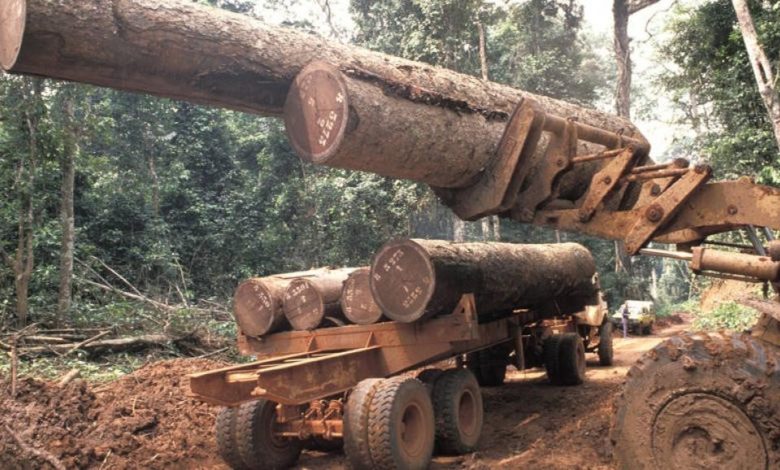DR Congo Timber Production Drops By 42.7% In 2020

The Democratic Republic of Congo produced 38,210 cubic metres of log timber and 29,621 cubic metres of sawed timber, giving a total timber production of 67,831 cubic metres during the first nine months of 2020.
According to data from the Central Bank of Congo, this is a drop of 42.7 per cent as compared to the production during the first nine months of 2019 when the country produced a total of 118,420 cubic metres of timber.
In the whole of 2019, DR Congo produced a total of 157,668 cubic metres of timber as against 224,558 cubic metres in 2018 and 134,850 cubic metres in 2017.
With a total forest area of 155 million hectares, the Democratic Republic of Congo has a production capacity of 10 million cubic metres of timber yearly.
But the country’s productivity in timber production is plagued by the absence of infrastructures such as roads and electricity within the forest zones.
This has inhibited investments in the sector which could be a main source of revenue for the country.
Besides these institutional restraints, there is also the perennial problem of illicit and illegal timber exploitation in the country which is partially fuelled by rogue members of the very authorities that are supposed to check such incidences.
“As is inherent in the mining sector where gold, diamonds and other minerals are illegally mined daily and flown out of the country from rogue airports scattered all over the vast country, illegal/illicit timber exploitation thrives in all of the forest zones of the country. Most of the timber is smuggled out of the country under the very noses of the authorities that are supposed to control this activity,” revealed a civil society activist in Kinshasa.
“The Democratic Republic of Congo is easily the richest country in Africa because of its vast natural resources spread throughout the country’s vast territory,” declared Ilunga Mutebi, who told HumAngle that he is an economist living in Mbugimayi.
Mbugimayi attributed the country’s problem to institutional theft and skullduggery which he said has turned the country into a prey for international interest groups.
“However, our problem since independence has been institutional theft and skullduggery which has turned the country into a playground for all kinds of international intrigue which has plunged our country into perpetual conflict with various armed groups sponsored by foreign interests, fighting for the body and soul of our nation which are its natural resources,” he said.
Support Our Journalism
There are millions of ordinary people affected by conflict in Africa whose stories are missing in the mainstream media. HumAngle is determined to tell those challenging and under-reported stories, hoping that the people impacted by these conflicts will find the safety and security they deserve.
To ensure that we continue to provide public service coverage, we have a small favour to ask you. We want you to be part of our journalistic endeavour by contributing a token to us.
Your donation will further promote a robust, free, and independent media.
Donate HereStay Closer To The Stories That Matter




